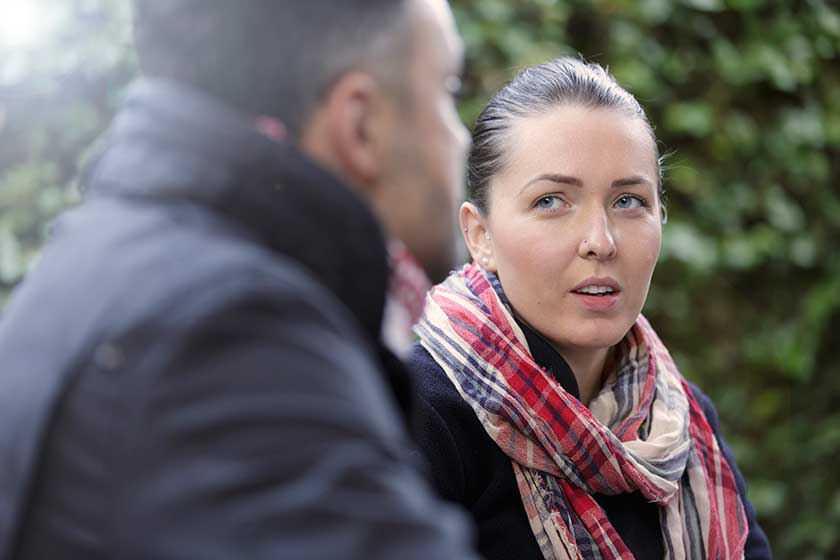You know life has been difficult for them lately. This might be stress at work, relationship difficulties, a significant life transition and you just have a sense that something is not quite right.
What are some of the signs of depression?
If your loved one displays any or all of the following symptoms for more than two weeks, they might be experiencing depression.
- prolonged feelings of sadness, low mood or despair
- loss of interest or pleasure in activities they usually enjoy
- irritability or being quick to anger
- increased reliance on alcohol or other substances to cope
- fatigue or loss of energy and/or difficulty sleeping
- having trouble concentrating and/or unusually indecisive
- sudden weight loss or weight gain, or increase/decrease in appetite
- feelings of worthlessness, excessive or inappropriate guilt
- self-harm behaviours or thoughts
- thoughts of suicide.
What should I do if I think my loved one is depressed?
- talk with them – a good way to start is, “I have noticed you have not been yourself lately, is everything OK?”
- listen without judgement – often they are not looking for a solution, just someone who cares and can be a sounding board.
- encourage them to seek professional help. There are many options available and a good place to start is to speak with their GP who can provide assistance or a referral to further treatment if required.
What else to consider?
Depression is common and in any one year, about one million Australian adults experience depression. Many people, though, do not seek help and continue to struggle on their own.
Seeking help will often seem daunting and it may take some time.
It is possible that your loved one will not be ready to talk, or feels embarrassed or even uncomfortable.
Let them know you are here for them and will continue to check in on them.
Remember, do not jump to conclusions, wait for a doctor to provide confirmation and treatment options.










